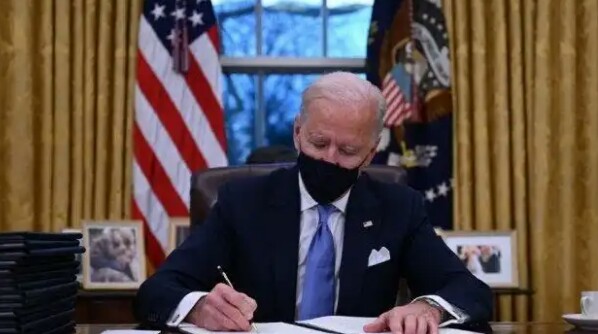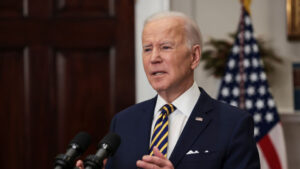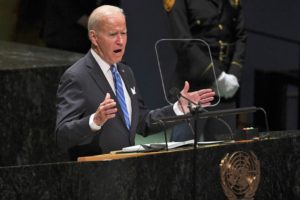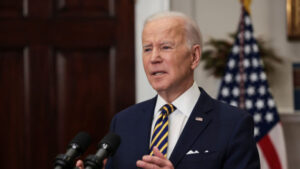Washington, MINA – Just hours from his inauguration, President of the United States (US) Joe Biden signed 15 executive orders that changed the policies of the previous president, Donald J Trump. One of them is the restriction on the arrival of citizens from a number of Muslim-majority countries known as “Muslim Ban”.
“A number of executive orders I signed today will help change the course of the Covid-19 crisis. We will tackle climate change in a way that has never been done before and improve racial equality and help marginalized communities,” said Biden on Thursday. “These are all just starting points,” he added.
The upcoming national security adviser, Jack Sullivan, explained that Muslim Ban, which limits the issuance of visas to a number of Muslim and African countries is a “stain on our nation”.
“The policy is rooted in xenophobia and hatred on the basis of religion,” he said in an explanation to the media regarding President Biden’s policies.
Also Read: Trump, Mamdani Aim for Cooperative Relationship After White House Meeting
Donald J Trump issued a ban on arrivals for citizens of a number of Muslim-majority countries such as Iran, Iraq, Libya, Somalia, Sudan, Syria and Yemen on January 27, 2017, a week after being inaugurated. The policy is in line with his campaign which often portrays Muslims as enemies of the US.
Various lawsuits and demonstrations have been filed against this policy. Trump then relaxed the ban and removed Iraq from the list. A number of courts in the US overturned Trump’s decision, but the Supreme Court finally gave the green light in December 2017.
A number of countries such as Chad, North Korea and Venezuela were later added to the list. As long as it is in effect, the policy separates many the US immigrants from their families who cannot visit.
Apart from Muslim Ban, Trump’s policy of withdrawing the US from the Paris Climate Agreement and US membership in WHO will also be returned by Biden. (T/RE1)
Also Read: Trump to Meet with NYC Mayor-Elect Mamdani at White House on Friday
Mi’raj News Agency (MINA)

































 Mina Indonesia
Mina Indonesia Mina Arabic
Mina Arabic